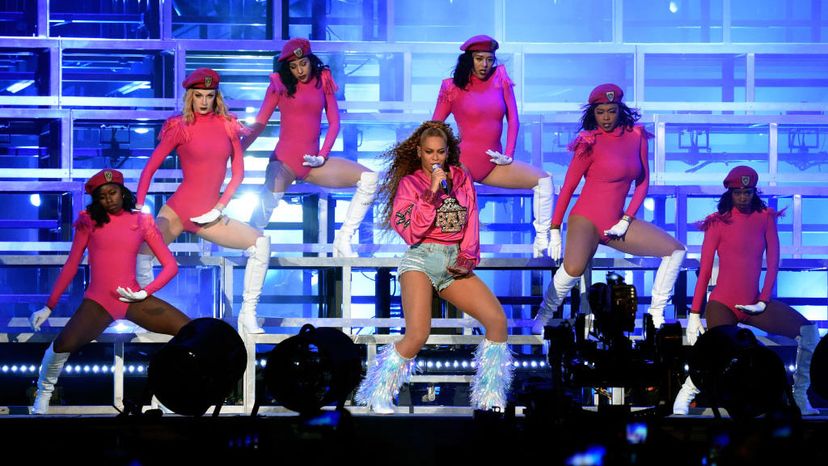
The music festival season is upon us. Beyoncé already delivered arguably the greatest live performance of all time at the Coachella Valley Music and Arts Festival in April 2018 and there are dozens more star-packed lineups on the way, from the electronica-themed Electric Daisy Carnival in Las Vegas to Bonnaroo in Manchester, Tennessee to Lollapalooza in Chicago.
Music festivals are a blast, but research shows they can also be a bummer for your ears. The sheer length of some music festivals — each weekend of Coachella runs three days with 10-plus hours of music a day — plus the widespread use of alcohol and drugs can inflict serious damage on your hearing with potentially permanent consequences.
Marshall Chasin is an audiologist from Toronto who specializes in hearing loss prevention for musicians. He says that there’s nothing inherently bad about going to the occasional loud concert or cranking your headphones up to max volume to listen to your favorite song, as long as you do it in moderation. That’s where three-day music festivals become a problem.
Chasin explains that there’s a point at which all sounds above 85 dB (equivalent of the dial tone on a telephone) can inflict permanent hearing damage. For example, exposure to 85 dB of noise seems harmless enough. But if you listened to a dial tone 40 hours a week for a full year, you’d suffer some level of permanent hearing loss. And if you turn the volume up to 94 dB (halfway on an MP3 player) all it would take is five hours a week to damage your hearing.
"It’s the total dose that matters, much like a radiation dose," says Chasin. "A single X-ray here and there won’t hurt you, but 37 X-rays in a short time period could be problematic."
Rock music at a live concert can easily reach 110 dBs. At that volume, your ears start to sustain permanent damage after only two minutes of daily exposure.
Chasin says it’s especially important to give your ears a rest once they’ve suffered some short-term hearing loss — that buzzing, ringing or numbness in your ears after attending a loud concert. There’s a recovery period of 16 to 18 hours during which your ears are particularly sensitive to further loud noises.
"There’s nothing wrong with going to a rock concert on Friday night," says Chasin, "Just don’t mow the lawn on Saturday morning."
And be careful about attending yet another rock concert on Saturday. If you don’t let your ears rest, there are several ways that they can suffer lasting damage. The inner ear is smaller than the tip of your pinky finger and contains the cochlea, a fluid-filled, snail-shaped chamber lined with thousands of hair cells. Prolonged exposure to very loud noises can disturb the fluid in the cochlea so violently that the hair cells bend or break, never to grow back.
Another source of permanent hearing damage, says Chasin, lies deeper in the brain, where nerve cells carry signals from the ear to neurons that process the sounds. Growing research shows that overloading those neural pathways with loud noises can disrupt the connection, creating situations where the neurons can’t detect the signals coming from the ear.
Luckily, the solution to noise-induced hearing loss from music festivals is simple: wear earplugs. Lots of concertgoers avoid wearing earplugs because they think it will muffle the music and ruin the experience. But that’s only if you use the cheap, foamy, disposable kind.
As professional musicians have known for decades, there are excellent, inobtrusive earplugs on the market that protect the ear from dangerous sound levels without distorting the quality of the music. The ER-20XS high-fidelity ear plugs from Etymotic, for example, evenly lower noise levels by 20 dBs across the hearing spectrum, not just the high frequencies. Similar models sell for less than $20 and they’re reusable forever.
Weirdly, drug and alcohol use at music festivals have also been shown to increase the risk of hearing loss. A study out of the Netherlands tracked 51 participants , with a mean age of 27, who attended an outdoor music festival in 2015. Half were given earplugs and half weren’t. All were advised to refrain from drugs or alcohol so that their hearing could be accurately tested after the 4.5-hour show. As to be expected, not everyone abstained.
The resulting data showed that concertgoers who drank beer or used drugs like marijuana or MDMA suffered worse short-term hearing loss. And interestingly, so did males, whether on drugs or not. What’s not clear from the data is whether the increased hearing loss linked to drugs, alcohol and "being male" is biological or behavioral in origin.
Chasin, for one, isn’t convinced that drugs or male hormones chemically alter the inner ear to make it more susceptible to damage. Stupidity is more likely at play.
"Using alcohol or drugs decreases your ability to self-monitor, so you’re more likely to put your head right next to a loudspeaker," says Chasin. "Your judgment is off."
Now That’s Surprising
More than half (52 percent) of all classical musicians suffer hearing loss compared to only 30 percent of rock and rock musicians. Chasin says it’s a dose thing, with classical musicians exposed to more hours of loud(-ish) music over their career than rockers.